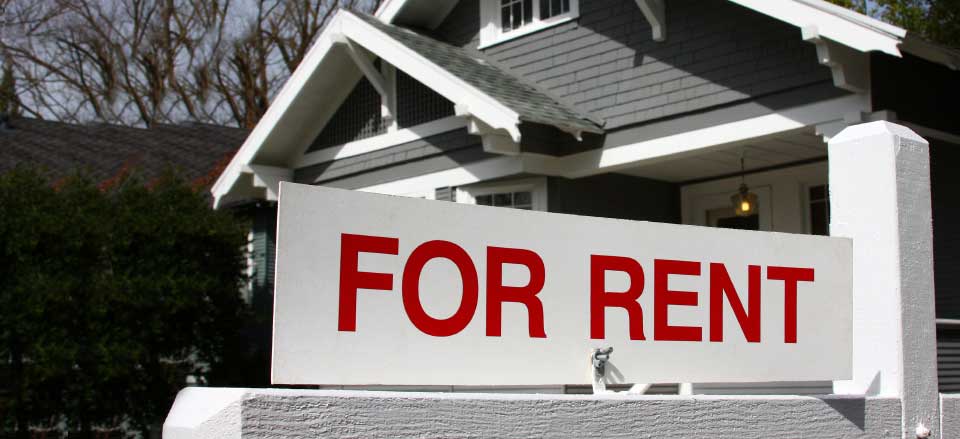A stunning, move-in ready, three-bedroom home in north London, backing on to a tranquil forested area with a monthly rent of $1200: it was Amy Kuenzel’s dream come true for her family of five.
She spotted the ad on Craigslist in November and quickly reached out to the owner to set up a viewing.
“It did seem too good to be true, but I thought ‘maybe he’s just a really nice guy who’s trying to offer affordable housing,'” Kuenzel said. “It looked really legitimate to me.”
She got a response almost immediately from someone who identified themselve as John Pepper.

Screen capture of John Pepper’s response to Amy Kuenzel’s viewing request. (Submitted)
Pepper said he was involved in relief work and had just moved to Florida after getting a promotion. He also wrote that he was unfamiliar with the rental market in London, having never leased before.
Kuenzel was initially impressed by Pepper’s altruistic background and honesty.
“I was like ‘oh, he’s such a good guy, he does all of this work for charity,'” she told CBC News.
She also thought the monthly rent was low due to his inexperience with the market. But after reviewing the message with her husband, Kuenzel felt something wasn’t quite right.
Rental scams ramping up
According to Dania Majid, a lawyer with the Advocacy Centre for Tenants Ontario (ACTO), rental scams are becoming more prevalent. Fewer available properties and higher rental fees are the perfect conditions in which rental scammers can thrive, she said.
Majid points to ACTO statistics for London. In 2017, the rental vacancy rate for a one-bedroom unit was 1.7 per cent. Majid said a healthy rental market should have a rate between three and five per cent.
“They know that people are desperate for housing and are even more desperate for affordable housing,” said Majid. “It’s not an accident that tenants are being targeted right now.”
Trusting her instincts, Amy Kuenzel looked up ‘rental scam’ online. Pepper’s advertisement and message included standard red flags for a possible scam; he unnecessarily spoke highly of himself, he wasn’t able to set up a viewing and he wanted a $1200 deposit.
She also discovered the house he was advertising for rent was listed as a property for sale.
Kuenzel believes Pepper had simply stolen the photos and details from the listing.
Wanting to play out the scheme, she filled out the attached rental application form.
“I wanted to see how far he would take it,” Kuenzel said.
The person named John Pepper responded to her with a congratulations on being selected as the successful applicant and requested the deposit be sent as soon as possible.

John Pepper’s English worsened as the correspondence progressed. (Submitted)
Kuenzel said she noticed Pepper was becoming more erratic and harder to understand.
“It went from a professional–sounding email to someone who hardly spoke English,” she said.
Once she stated she would not be sending the money, all communication ceased.
Another story with red flags
In early November, MacKenzie Johnston started a new trucking job in London. Originally from Chatham-Kent, he spent his first few shifts sleeping in his vehicle at the truck terminal, a less than ideal situation.
“I really needed to find somewhere to stay,” Johnston said.
He put up a post on Kijiji, seeking an affordable London rental. Within a day, he received a message from someone named Steve Anderson.
Anderson said he was looking for someone take over his lease of a basement unit.
The monthly rent was relatively affordable, but Anderson said he wanted rent money and a $400 damage deposit upfront.
Johnston told CBC News that he found the request “highly unusual”.
Johnston declined the offer, saying the combined $1250 was too expensive. But Anderson persisted, saying he would accept just the $400 deposit as long as he could get the money immediately and Johnston moved in as soon as possible.
Johnston, growing wary, asked to view the unit. Anderson replied by saying that he no longer lived in London and had no friends or relatives to accommodate a showing.
Johnston requested a meeting in person to exchange the $400 deposit for the keys, saying he was willing to drive to Anderson’s new location. It was then Anderson said that he lived in Florida and wanted the money wired before providing Johnston with the keys.
Even after declining multiple times, Johnston said he kept receiving text messages from Anderson.
“He was very, very persistent,” said Johnston.
“He would come up with what would appear to be clever ways to try to get you to pay the deposit. He said he would take pictures of him sending the keys in the mail, sending the photos of the unit, trying to figure out ways to coerce me.”
Know your rights
Dania Majid, a lawyer with the Advocacy Centre for Tenants Ontario, says the best defence against rental scams is knowing your rights as a tenant.
Majid said the best way to protect yourself in these kinds of situations is to do your own research and be well-informed.
“Before anyone enters the rental market, they have to know their rights as a tenant,” she said. “It isn’t overly complicated.”
For instance, damage or security deposits are illegal in Ontario. The only deposit a landlord can legally collect is a rental deposit that goes directly toward the last month’s rent, said Majid.
Majid also said that, as of April 30, 2018, all conventional lease agreements must use the Ontario-issued Standard Lease form.
Few exceptions exist for cases such as public housing, care homes and sub-letting, which are clearly detailed.
The bottom line: trust your gut and be smart, said Majid.
